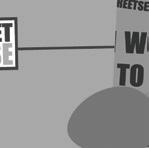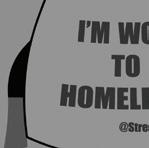



































































































Vendor Program: We provide people experiencing homelessness and poverty in D.C. with a low barrier economic opportunity to earn an income. Each one of our vendors functions as an independent contractor for Street Sense Media, managing their own business to earn an income and increase stability in their lives.




Abel Putu, Aida Peery, Al Edmonson, Akindele
Akerejah, Amia Walker, Amina Washington, Andre Brinson, Andrew Anderson, Angie Whitehurst, Anthony Carney, Antoinette Calloway, Archie Thomas, Beverly Sutton, Brianna Butler, Burton Wells, Carlos Carolina, Carol Motley, Charles Armstrong, Charles Woods, Chon Gotti, Chris Cole, Conrad Cheek, Corey Sanders, Daniel Ball,




Darlesha Joyner, David Snyder, Debora Brantley, Degnon (Gigi) Dovonou, Denise Hall, Dominique
Anthony, Don Gardner, Donté Turner, Doris Robinson, Earl Parker, Dwayne Butler, Eric Glover, Eric ThompsonBey, Erica Downing, Evelyn
Nnam, Floyd Carter, Franklin
Sterling, Frederic John, Freedom, Gerald Anderson, Greta Christian, Harriet
Fields, Henrieese Roberts, Henry Johnson, Ivory Wilson, Jacqueline “Jackie” Turner,




Jacquelyn Portee, James Davis, James Hughes, Jeanette Richardson, Jeff Taylor, Jeffery McNeil, Jeffrey Carter, Jemel Fleming, Jennifer McLaughlin, Jermale McKnight, Jet Flegette, Jewel Lewis, John Alley, John Littlejohn, Josie Brown, Juliene Kengnie, Kenneth Middleton, Khadijah Chapman, Kym Parker, Laticia Brock, Laura Smith, Lawrence Autry, Levester Green, Lu Potter, L. Morrow, Mango Redbook, Marc

Grier, Marcus McCall, Mars, Martin Walker, Mary Sellman, Maurice Spears, Melody Byrd, Michael Warner, Michele Rochon, Morgan Jones, Nikila Smith, Patricia Donaldson, Patty Smith, Phillip Black, Queenie Featherstone, Rachelle Ellison, Rashawn Bowser, Reginald Black, Reginald












C. Denny, Ricardo Meriedy, Richard “Mooney” Hart, Rita Sauls, Robert Warren, Rochelle Walker, Ron Dudley, Sasha Williams,
Shuhratjon Ahmadjonov, Sybil Taylor, Tonya Williams
Vennie Hill, Warren Stevens, Wendell Williams, William Mack
BOARD OF DIRECTORS
Mary Coller Albert, Blake
Androff, Nana-Sentuo
Bonsu, Jonquilyn Hill, Stanley Keeve, Clare
Krupin, Ashley McMaster, Matt Perra, Michael Phillips, Daniel Webber, Shari


Wilson, Corrine Yu
CHIEF EXECUTIVE OFFICER








Brian Carome
DIRECTOR OF PROGRAMS















































































































































































































































































































































Darick Brown


DIRECTOR OF VENDOR



EMPLOYMENT
Thomas Ratliff




VENDOR PROGRAM













ASSOCIATES


Aida Peery, Clifford Samuels, Chon Gotti

MORGAN BASKIN
DCist/WAMU
Arlington will open its waiting list for housing vouchers to the public this week, the county’s human services agency announced in late August. It will be the first time in more than a decade that residents will have the chance to apply for the federally-funded subsidy.
On Sept. 13, eligible residents can apply online for a lottery that will select 5,000 people to add to the waiting list. The decision does not reflect any new voucher funding, and the county won’t administer all of those vouchers at once.
“The fact that there’ll be a lottery for 5,000 people to get on this waiting list just speaks to the fact that there’s not nearly enough supply
of vouchers to meet the demands in Arlington and the rest of the country,” says Jill Norcross, executive director of the Northern Virginia Affordable Housing Alliance. “There’s just not enough to go around for everybody who’s eligible.”
The federal Department of Housing and Urban Development (HUD) requires jurisdictions to routinely update its waiting lists for housing vouchers and public housing, many of which remain closed for a decade or more while the relevant agencies work their way through the names on the list as resources become available.
Arlington’s Department of Human Services hasn’t opened its waiting list for housing vouchers since 2012 says Alice Marshall, a policy analyst at the Alliance for Housing Solutions. According to the agency, it updates its waiting list every 10 to 20 years.
Only about 1,550 families in Arlington currently use a Housing Choice Voucher, which covers the vast majority of a household’s rent. HUD requires eligible applicants to meet certain income limits, and in Arlington, 75% of voucher recipients must be “extremely low-income” — about $32,000 for a single household — with the rest considered “very low-income,” or about $53,000 for a single household. But in practice, the scope of housing insecurity means that many jurisdictions give preference to applicants who are unhoused, as is the case in Arlington.
“We could probably use three and four times as many [vouchers], easily. And that’s likely the case in many jurisdictions,” says Marshall of the Alliance for Housing Solutions. “It’s a matter of not enough federal funding to meet the needs of low income earners.”

One 2021 study on poverty in the county conducted by the Arlington Community Foundation shows that there are more than 8,000 renter households in the county that
make less than 30% of the area median income, a metric used by HUD to calculate poverty levels. Of those 8,000-plus households, nearly half are “rent-burdened,” or spending more than one-third of their income on rent.
The study also found an extreme mismatch between the demand for and supply of appropriately affordable apartments in the area, with fewer than 1,600 apartments renting at rates affordable to the 8,000 low-income households in need of them. Those households represent 12% of Arlington’s population.
A more recent study, published last month by the Community Foundation for Northern Virginia, found that an increasing share of the region’s population is experiencing financial hardship. One in five families reported not making enough income in 2021 to meet basic shelter, food and medical needs, and growing inflation prompted more than one-third of families to report difficulty paying their bills, up from 27% who reported the same in 2021.
“I would imagine that the demand is only going to go up, because we know that rents, and cost of living, are outpacing income significantly, particularly at that lower, middleand lower-end of the income stream. So that means those folks are even more desperate to keep up with rental increases that their income doesn’t help them keep pace with,” Marshall says. “I’m sure the situation is getting more desperate for people in those income brackets.”
The application for housing choice vouchers will remain open between 8 a.m. Sept. 13 and 11:59 p.m. on Sept. 23, after which the county will hold a lottery for spots on the waiting list. This article was originally produced by DCist/ WAMU
□ The September vendor meeting will be held on Friday, Sept. 22 at 2 p.m. Come with questions, comments and concerns!
□ The 20th Anniversary Fundraiser will take place on Thursday, Sept. 28, from 6 to 9 p.m. Everyone must purchase a ticket at https://bit.ly/SSM20
□ Find a list of farmers markets, the hours when case management is open and other useful info at streetsensemedia.org/ vendor-info
□ Come see Thomas to learn how to accept Venmo and CashApp payments and how to use Twitter to let customers know where you’re selling.
□ Receive extra newspapers for referring someone you know to new vendor orientation, every Tuesday and Thursday at 2 p.m.

Read this democratically elected code of conduct, by vendors, for vendors!
1. I will support Street Sense Media’s mission statement and in so doing will work to support the Street Sense Media community and uphold its values of honesty, respect, support, and opportunity.
2. I will treat all others, including customers, staff, volunteers, and fellow vendors, respectfully at all times. I will refrain from threatening others, pressuring customers into making donations, or engaging in behavior that condones racism, sexism, classism, or other prejudices.

3. I understand that I am not an employee of Street Sense Media but an independent contractor.


4. While distributing the Street Sense newspaper, I will not ask for more than $2 per issue or solicit donations by any other means.

5. I will only purchase the newspaper from Street Sense Media staff and volunteers and will not distribute newspapers to other vendors.
VENDOR PROGRAM VOLUNTEERS
Beverly Brown, Roberta Haber, Ann Herzog, Madeleine McCollough, Dylan Onderdonksnow, Amelia Stemple, Tyler Bruno
EDITOR-IN-CHIEF
Will Schick
STAFF REPORTER
Annemarie Cuccia
MICHAEL STOOPS
FELLOW
Eliza DuBose
ARTISTS-INRESIDENCE


Ariane Mohseni (Film), Bonnie Naradzay (Poetry), David Serota
(Illustration), Lalita Clozel (Film), Willie Schatz (Writing), Leslie Jacobson (Theater), Roy Barber (Theater), Rachel Dungan (Podcast)





ARTS EDITOR (VOLUNTEER)













Austine Model
OPINION EDITOR (VOLUNTEER)




Candace Montague
EDITORIAL VOLUNTEERS
Josh Axelrod, Ryan Bacic, Lilah Burke, Chelsea Ciruzzo, Lenika Cruz, Alison Henry, Kathryn Owens, Andrew Siddons, Bill
Meincke, Jessica Webster, Anne Eigeman, Micah Levey
6. “I will not distribute copies of “Street Sense” on metro trains and buses or on private property.”
7. I will abide by the Street Sense Media Vendor Territory Policy at all times and will resolve any related disputes with other vendors in a professional manner.
8. I will not sell additional goods or products while distributing “Street Sense.”




9. I will not distribute “Street Sense” under the influence of drugs or alcohol.
10. I understand that my badge and vest are property of Street Sense Media and will not deface them. I will present my badge when purchasing “Street Sense” and will always display my badge when distributing “Street Sense.”

Turn on the news during scorching summer heat waves and wildfires and you'll likely hear warnings that average global temperatures are rising towards a key limit of 1.5 degrees Celsius above preindustrial times, intended to avoid the worst of climate change.
What you probably won't hear is that billions of people worldwide are already experiencing local warming of higher than 1.5 degrees Celsius (2.7 degrees Fahrenheit) — the most ambitious global goal set in the 2015 Paris Climate Accords.

Several scientists said that people living in Europe, the Arctic, much of Africa, North America, the Middle East, Asia and parts of South America have in recent years been exposed to regional temperatures that breached the 1.5 degrees Celsius ceiling.
They are being hit hard by the ever-more damaging heat waves, droughts, floods, storms and wildfires fuelled by temperatures above the 1.5 degrees Celsius Paris Agreement threshold, the scientists said.
"Many people are living in areas that have already warmed more than 1.5 degrees Celsius, and ... the main reason for this is that the land warms faster than the oceans," said Robert
Rohde, lead scientist at Berkeley Earth, a U.S. nonprofit research group.
With temperatures varying naturally from day to day, it is hard for anyone to notice a long-term local change of 1.5 degrees Celsius.
But the creeping rise in regional temperatures on land — which accounts for only 30% of the planet's surface — is super-charging increasingly extreme weather for its 8 billion people.
Worldwide, July was the hottest month on record at exactly the Paris limit of 1.5 degrees Celsius. U.N. Secretary-General António Guterres said this heralded a new era of “global
boiling.”

And ever more people are facing global warming of 1.5 degrees Celsius or above year-round.
Francesco Tubiello, a senior statistician at the U.N.'s Food and Agriculture Organization (FAO), said nations with a combined population of almost 3 billion people were exposed to more than 1.5 degrees Celsius of warming in 2022, based on his personal calculations.
"This is a conservative figure," Tubiello added. He compared 2022 with cooler temperatures from 1951-80, the baseline in an FAO and NASA database, when global warming had already added about 0.3C since pre-industrial times.
In a 2018 report, the Intergovernmental Panel on Climate Change (IPCC) estimated that 20-40% of the world's population had experienced more than 1.5 degrees Celsius of warming “in at least one season.”
The quirk of slower ocean warming is often ignored. U.N. reports, for instance, tend to refer to continents such as Europe and Africa "warming faster than the global average" without mentioning that almost all land is warming quicker than the worldwide average including seas.
Overall, the IPCC estimates that global average surface temperatures were 1.15 degrees Celsius warmer in 2013-22 than a pre-industrial baseline of 1850-1900, with land 1.65C hotter and the ocean 0.93 degrees Celsius warmer.
But there are big differences even on land. Countries such as India — the world's most populous — and much of the southern hemisphere are warming less quickly than the land average.
Zeke Hausfather, a climate scientist at the Breakthrough Institute, a global research group, said cool sea breezes may help offset the pace of warming near coasts.
"People tend to disproportionately live near coastal areas,
which tend to have lower rates of warming due to their proximity to oceans," he said, evening out the average person's long-term experience of warming.
The IPCC estimates that 900 million people live in low-lying coastal zones, including in cities such as Tokyo, Mumbai, New York, Shanghai, Lagos and Buenos Aires.
No one knew at the time — but as world leaders celebrated the Paris Agreement in December 2015, global average surface temperatures rose briefly above the 1.5 degrees Celsius warming goal they had just set, according to the Copernicus Climate Change Service.
Since that first blip above 1.5 degrees Celsius for a few days, which was stoked by an El Niño weather event that warms the Pacific Ocean, breaches have become frequent and longer, it has found.
Under the agreement, almost 200 nations set the target to limit global warming to "well below" 2 degrees Celsius above pre-industrial times while "pursuing efforts" to keep it below 1.5 degrees Celsius.
The Paris text does not spell out whether a breach is to be judged in days, weeks, months, years or decades. The IPCC interprets the 1.5 degrees Celsius threshold as denoting a global average over a 20-year period.
The U.N.'s World Meteorological Organization says there is a 66% probability that global average temperatures will be more than 1.5 degrees Celsius above pre-industrial times in at least one full year between 2023 and 2027. An El Niño event in the Pacific is again boosting temperatures this year.
"We've already breached 1.5 temporarily," said Samantha Burgess, deputy director of Copernicus, which tracks global temperatures. “Ironically, we were over 1.5 when the Paris Agreement was adopted.”
"With all probability we will overshoot 1.5 degrees" in the early 2030s, she said of long-term trends.
The Paris goals are a cornerstone of efforts to spur a shift from fossil fuels — the main source of man-made greenhouse gases — towards renewable energies such as wind and solar power.
Gavin Schmidt, director of the NASA Goddard Institute for Space Studies, said that local breaches of 1.5 degrees Celsius do not mean the central goal of the Paris climate deal has been lost.
"I would stress that there is nothing special about 1.5 degrees Celsius locally (or 2 degrees etc.) — the Paris agreements reference the long-term global means (which encompass a large amount of spatial variation)," he wrote in an email.
And even if temperatures globally breach 1.5 degrees Celsius or 2 degrees Celsius, governments can try to bring them down again by 2100 — the long-term horizon for the Paris Agreement — for instance, by planting trees that soak up carbon dioxide or by developing industrial-scale technologies to extract carbon from thin air.
Nonetheless, governments will have to make unprecedented cuts in greenhouse gas emissions to keep the 1.5 degrees Celsius goal alive, the IPCC says. Nations will meet in Dubai from late November for this year's COP28 U.N. climate summit in a bid to do that.
The big challenge they face is that global emissions have continued to rise to new highs, while most countries' commitments for cuts to stay below 1.5 degrees Celsius "are words on paper ... rather than changes in policy," Copernicus' Burgess said.
After years of letting federally funded housing vouchers for people leaving foster care and facing homelessness go to waste, D.C. is implementing a new law to ensure every young person who needs a voucher gets one.
The federal government funds thousands of Family Unification Program (FUP) vouchers nationally. The housing vouchers are available both for young people aging out of foster care at 21 and for parents who want to reunite with their children in foster care but need stable housing to do so.
A series of articles published by Street Sense Media and The DC Line in April revealed that the city has long used only about 80% of its FUP vouchers. According to over a dozen people interviewed for the series, young people about to leave foster care consistently needed the support, but D.C.’s Child and Family Services Agency (CFSA) did not connect them to vouchers. Meanwhile, CFSA reports show that between five and 20 young people move into unstable situations or experience homelessness when they age out of foster care each year.

Young people exiting foster care are at a high risk of homelessness — between 25% and 50% of them experience homelessness within four years, according to national studies. Across the U.S., people leaving care are less likely to have resources or support networks to lean on than peers who didn’t spend time in care. In an annual census, 13% of people experiencing homelessness in D.C. reported having spent time in the child welfare system.
One solution young people and advocates identified in the initial series was the Preserving Our Kids’ Equity Through Trusts (POKETT) Amendment Act of 2022. The bill — which reformed multiple aspects of the child welfare system — included a mandate that CFSA consider each young person leaving foster care for a voucher, and make a housing plan for every youth.
CFSA is slated to fully implement the POKETT Act in the coming year. The agency reports it has already begun distributing more vouchers, and has approved 17 vouchers since April for foster youth experiencing or at risk of homelessness. As required by the law, CFSA is also taking steps to help young people in foster care claim and save any benefits they may be eligible for, a sum experts say can be monumental in helping young people afford stable housing when they leave care. With the reforms, CFSA expects to connect enough young people and families to the FUP vouchers by Dec. 31 that D.C. will be able to apply for more vouchers from the federal government.
“I’m glad to see that [the agency] has already taken key steps and others are in process, that will give eligible young people more promising futures,” Ward 1 Councilmember Brianne Nadeau, who introduced the POKETT Act, wrote in a statement to Street Sense and The DC Line. “All children should be able to exit foster care with an expectation and the tools and funds they need to survive and thrive on their own.”
When Jay aged out of foster care four years ago, CFSA
had 90 FUP vouchers available. But instead of recommending they apply for the program, or even telling them about it, they said CFSA employees directed them to the agency’s Rapid Rehousing program. While that program likewise provides a subsidy, the duration is much shorter and participants must have a job to pay their portion of the rent.
At first, this was fine, Jay said. But then, like many Americans, they lost their job during the pandemic, and they couldn’t cover their end of the rent. By the time Jay moved out, they were around $10,000 in debt.
“I didn’t know about the vouchers. I didn’t know there was [any] other resource that could help,” said Jay, who is using a pseudonym because they are still involved with CFSA.
Jay’s story is similar to those of many people interviewed for the series. Over the last five years, D.C. has had between 75 and 92 vouchers available at the end of each year, according to data from the U.S. Department of Housing and Urban Development (HUD). Young people interviewed for this series said CFSA staff rarely told them about the vouchers or helped them apply, and instead steered them to move back in with the families from which D.C. had once removed them.
The first time Jay asked CFSA about a FUP voucher, they said, the agency told them they didn’t exist. Later, they were told the vouchers were only available to people who were leaving foster care with a child of their own, not for single adults. Sharra Greer, policy director at the Children’s Law Center, shared similar frustrations earlier this year about the
difficulty of obtaining accurate information: CFSA had denied the majority of people her organization helped apply for FUP vouchers, and she didn’t know why.
At an oversight hearing this spring, CFSA Director Robert Matthews said the agency was not withholding vouchers inappropriately. Rather, he argued, many young people about to age out are not ready to live independently, and are better off going to live with family.
“I do not believe every older youth should have a voucher,” Matthews said at the hearing, adding that in some instances continuing to provide assistance for youth as they age out prevents them from learning to live on their own.
Jay says they’ve heard the same sentiment from CFSA employees. But Jay argues that the reverse is true — that CFSA needs to help young people get vouchers, so they have time to become self-sufficient.
“There's no financial literacy. There’s no, ‘This is how you take care of a home,’” Jay said of the exit from the foster care system. “We’re not getting that.”
Many reforms that advocates like Greer have sought in CFSA’s implementation of the FUP voucher program became law last year with the enactment of the POKETT Act.
The agency’s FUP voucher staffers now attend Youth
Transition Plan (YTP) meetings, which the agency holds with youth when they turn 20. The meetings are a mechanism for CFSA to present aging-out plans, but youth said previously that staff rarely discussed FUP vouchers. Starting Oct. 1, CFSA staff will also develop a housing plan for each young person at YTP meetings.
The agency has also executed a formal agreement with D.C.’s homeless services system to share data, so CFSA can identify youth who have already aged out and are now experiencing homelessness. So far, the homeless services system has made two referrals to CFSA, one of whom has been recommended for a FUP voucher, according to an agency spokesperson. The Community Partnership, which operates the homeless services system, will continue sending referrals each month.
Since April, seven families and youth have moved into housing via FUP vouchers. Another 23 are in the process of applying for a voucher or looking for housing. CFSA hopes to refer at least nine more youth and families to the vouchers by Dec. 31, which will allow the city to apply for a second type of federal voucher, the Fostering Youth to Independence (FYI) program. Unlike FUP vouchers, these are available only for youth.
According to slides from a CFSA briefing in July on housing for older youth, the agency has already applied for 75 more FUP vouchers. Once the agency requests the FYI vouchers, it will begin reserving all FUP vouchers for families.

“We continue to hear that far too many youth do not know about or benefit from this critical resource,” Ward 4 Councilmember Janeese Lewis George, whose committee has oversight over CFSA, wrote in a statement to Street Sense and The DC Line. “Given how hard it is for young people to find affordable housing in D.C., my expectation is that we will utilize every voucher we have at our disposal.”
Jay first heard about the FUP vouchers from a friend and, after months of confusing communication with CFSA, moved into their new apartment earlier this year. But they said they’re certain that things would be different if they’d received a voucher when they first left foster care in 2019 — they wouldn’t be thousands of dollars in debt, and they’d actually have savings.
Ruth White, the executive director of the National Center for Housing and Child Welfare, spent months assisting Jay with getting a voucher. “What a crazy, wild and unnecessary ride this has been,” she said.
CFSA has also begun implementing another provision of the POKETT Act, which prevents CFSA from seizing benefits from young people in foster care. As is common among child welfare agencies, CFSA previously screened each child when they entered care to determine eligibility for disability, survivor and veterans benefits. The agency then claimed those benefits on behalf of the youth, and used it to pay for their care.
That’s against the spirit of the federal law, according to Amy Harfeld, national policy director at the Children’s Advocacy Institute. Even though CFSA can help young people in foster care claim their benefits, the Social Security Administration prefers the benefits be held by family or trusted adults.
The benefits should then be saved, Harfeld said, or used for the unmet needs of children, such as special medical treatments, educational opportunities or resources like a car — not used to pay for their time in foster care. Harfeld has worked with young people in D.C. who never even knew they were eligible for benefits.
Under the POKETT Act, CFSA has begun informing youth who are eligible for benefits. Starting on Oct. 1, the agency will contract with an outside agency to establish savings accounts for the benefits.
“That is literally the difference between aging out into homelessness or getting a security deposit in on a decent apartment,” Harfeld said.
While CFSA is taking steps to refer more people to vouchers, recipients still have to find somewhere to live — a challenge familiar to people matched with other kinds of
housing vouchers. CFSA has regularly made FUP referrals to people who never are able to lease up, the spokesperson wrote. Another complication is that, at best, the vouchers take six months to lease up, according to a July presentation from CFSA.
“Housing costs and the competitive renter market in D.C. are very challenging for low-income youth and families — these challenges represent the number one reason why FUP vouchers go unused,” reads a slide from the presentation.
Jay remembers struggling to find an apartment, too — especially with the debt from their time in Rapid Rehousing. While landlords cannot turn people away because they are using vouchers, it’s harder to rent without a good credit score or long rental history. If a young person is unable to find somewhere to live within 120 days, their FUP voucher expires.
Partially because of this challenge, CFSA actually distributes fewer vouchers than authorized by HUD, the spokesperson said. Units that former foster care youth rent are on average $1,886 per month, meaning the allocation can’t go as far as projected, according to CFSA. Because housing costs are higher in D.C. than in other jurisdictions, “48 vouchers in D.C. might not equate to 48 households served,” the spokesperson wrote.
Jay, who now informally helps other youth apply for the vouchers, said there’s still a lot of confusion over who receives them and who doesn’t. If youth aging out have a bad relationship with their case manager or don’t know to ask for the voucher, Jay said, it’s still hard to get one. But Jay remains hopeful other people might get the chance they never had.
“I would have hoped it would have helped be like a true transition,” Jay said of the recent reforms. “There is no way that someone should be aging out of foster care and being taken care of by the government and [then] switched over [to] the homeless services. Like that's just unacceptable.”
This article was co-published with The DC Line.
 STEVEN MACKENZIE AND TONY INGLIS International Network of Street Papers
STEVEN MACKENZIE AND TONY INGLIS International Network of Street Papers
Street paper vendors across the world might come from many different circumstances, but they have always had common challenges to overcome. In the past, these focused on homelessness, poverty, social exclusion and inequality. But now, as roasting temperatures scorch much of Europe and other parts of the planet, the climate crisis has been added to the mix and, for some, is becoming the biggest issue of them all.
The International Network of Street Papers has been platforming stories from the marginalized people disproportionately affected by extreme weather. The Climate Disaster Project in 2022 painted a picture of how vendors at Vancouver street paper Megaphone dealt with the Canadian heat dome in the summer of 2021. Now, street papers and their vendors in other parts of the world are reporting back on how this summer’s frighteningly high temperatures are impacting their lives.
After heat waves in the south of Italy, and storms and tennis ball-sized hailstones in the north, Sabrina Montanarella from Milan-based street paper Scarp de’ tenis shares the story of a 50-year-old man experiencing homeless who died in Rome. Sorriso — which means smile, because of his lack of teeth — was found dead on a bench on July 22. “He died from heat and indifference,” Montanarella says.
The weather has been unpredictable even in the northern parts of the country.
“This summer, the weather has been really crazy,” says Robert Okosodo, who sells the street paper zebra. in the South Tyrol region of Italy. “So far, we have been having either very hot days or heavy rain. These weather conditions are affecting the selling, because when the sun burns too much or it rains, there are no people on the streets. I sell the majority of papers in the morning between 10 and 12, and in July it’s been hard to find many other people outside.
“Physically it’s hard to sell the paper when the temperature gets high. I try to find a good spot in the shade and drink a lot of water. Here in the north of Italy, it’s very hard in the wintertime as well because of the cold. I usually sell the paper in Brunico, a small town. There I have my regular customers and some who occasionally buy from me, including tourists mainly from Germany, Austria and other regions of Italy. Usually after two weeks from the issue of the new edition of the paper I’ve sold almost 400 magazines. This month I’ve only sold 200 copies so far. So I would say that the numbers don‘t lie. It’s hard to be a street paper vendor in these conditions, but I do not have any other choice right now.”
Greece has been the epicentre of the heat wave. As temperatures in Athens exceeded 40 degrees Celsius on July 15, the Acropolis was closed to tourists and a wildfire — like those affecting the islands of Corfu and Rhodes — raged a few miles north of the capital.
“We are expecting 41 degrees Celsius today,” says Ioanna Sakketa when she checks in. Sakketa is director of development and partnerships and is working hard to support around 70 vendors who make their living selling magazines on the streets of the city.
When temperatures were surpassing 40C for days on end, Shedia, the street paper, made the difficult decision to stop selling magazines to vendors. “Of course, we had reactions from our vendors,” Sakketa says, “but we were afraid that they wouldn’t take care of themselves on their own so we decided not to distribute the magazine.”
Greece always has warm summers, but the sustained heat wave means conditions are worse than previous years. “Now it’s an alarm for everyone,” Sakketa explains. “In the news they say take care of yourself and give instructions about how to go out. Last year it was warm, but this is something else. The problem that I see coming is what if this continues for the whole summer? Then what do we do? We stopped selling magazines for a while. But then if it continues how do you reassure their income?”
To support their vendors during the heat wave Shedia is providing extra free magazines to boost their income once selling is permitted. “The good thing is that none of our sellers is without a place to stay,” Sakketa adds. “They’re not living in the streets.”
Sakketa has been developing “protected points of sale.” These are the result of partnerships with places like supermarkets and shopping malls which allow a vendor to sell on their sheltered — air conditioned — premises, but often only for a couple of hours a couple of days a week. Now she wants to dramatically extend the program.
“It’s not that everybody says yes to these points of sale very easily, or perhaps they give it to you with some conditions, but there is the urgency. We say to them, ‘listen, vendors can’t go out, we need to increase the days and the hours.’ And companies that haven’t done this with us yet, we’re going to ask that they open their doors now.”
Shedia is also exploring how to set up a subscription service. Subscription sales are already helping other street papers. Liceulice, based in Belgrade, Serbia, has also been battling the heat wave. They say that “more subscriptions mean less reasons for sellers at risk and high temperatures.”
A spokesperson adds: “Due to extremely high and dangerous temperatures, we advised our magazine sellers to take extra care of themselves these days, not to go out when the sun is hot, and if they have to, stay in the shade and hydrate as much as possible.”
On their Facebook page they added the following advice to their followers during the heat wave: “When you see vendors, please be mindful of them. They sell magazines even in the highest temperatures because they have to, because every issue sold to them means safety and survival.”
While the heat is not as extreme in northern Europe, street papers there are also aware of the difficulty it causes when the weather is not ideal. Bernhard Perzanowski, who sells Gothenburg-based street paper Faktum and remembers the trouble he had working during the Swedish heat wave of 2018,

says: “It must also be tough in the countries that are poorer than Sweden which have also been hit by higher prices and inflation, it is also noticed on my sales here in Gothenburg.
“Sales of Faktum go best if it is between 22 and 25 degrees, neither too hot nor too cold.”
In east Asia, where temperatures have also hit worrisome levels, The Big Issue Japan has been doing what it can to assist its vendors. They have published an online FAQ so customers understand the measures being taken, which outlines their changes to pitch locations with more shade, and their distribution of water, food and other essential items. The magazine has also given out donations of jackets which have a cold air circulation mechanism to keep vendors cool when working in the sun.
The magazine’s vendors are remaining steadfast. “I don't mind the heat,” says Mr. Sakamoto, a Big Issue Japan seller. “Winter is harder for me. I cannot sleep when it's freezing but heat does not bother me.”
Another vendor, Mr. Shirane, understands the risks. “I worry about my health,” he says. “The heat is really getting to me. I had heat stroke in the past. It was a really scary experience.”
Courtesy of the International Network of Street Papers and The Big Issue UK

Was it Foster, the nightman being gutted by JP’s vicious Doberman watchdog? Or simply the obliteration of the orange day-glo mural heralding the names of Jimmy Dean, Roy Clark, Cowboy Copas, Nat King Cole and others from the storied, scabby walls at Cousin Nick’s tavern? And the doubling up in price for shots of scotch, bourbon and beer?
Hard to say, but clearly the 1973 magic had sprinkled itself all around the tubular vastness of the “club opposite the cablecar barn.” The old heavyset Greek who’d opened the joint circa 1949 was now gone, and his flaky cannabis-besotted grandsons had run the club into the ground.
But my lifetime chum Little Bobby had taken the place by storm in late ‘72, dazzling his blues, his crowd bedazzled following with the spotlight’s glare bouncing off his bright red Gibson ES-335 guitar.
And in addition to playing the role of “Roadie” [for Bobby] first time in my life — rolling unwieldy speaker cabinets and bass drum through Nick’s tight little doorway — I heard the slurred devoration of “Jew Boy” for the first time in my life outside 4708 14th St. N.W.
Spoiler alert: I am not of Jewish origin. Interestingly, Chicago lads like Mike Bloomfield and Mark Naftalin were Jewish and wealthy heirs of mercantile and political families who sought refuge in the shadows of Blues world.
So here in funky Brightwood D.C., across from the tower of the old Trolley Barn (now Metrobus garage), a stooped, drunken small-time merchant I’ll call “Tuck,” berated my hanging with the “Blues Jews.”
Of course, Tuck admired my gritty refusal to play the race card. He had put up Muddy Waters in one of his enterprises — a seedy rooming house on T St. down in Shaw. Too bad he didn't realize I’d played the same harmonized licks alongside “Master Mud '' on the stage of the world-renowned Cellar Door Club of Georgetown. I’d been brought into Mr.Waters circle via the good will of Bob Margolin, the band’s new rhythm guitarist, whose monster sound did not detract from his Boston Hebraic roots. Backstage before the show, Bob M., myself, Muddy and the suave bassist Calvin “Fuzz” Jones slapped cards on the table in the wild hands of ‘Tonk.’

Meanwhile at the cavelike-cranny that had morphed into a musical church, mustachioed characters sought to bribe Little Bobby into bringing them on stage in exchange for gifts — bags of pot and related substances.
“Harper” on the blues harp, “Neon Leon” on vocals, and “LSQ” who even offered our local star a new ebony-coloured ES 335 to manage his gigs. No such luck. But I stood alongside my buddy with my cheap Teisco “axe” and tore out “That Did It,” by Bobby “Blue” Bland. Sadly, after old Nick’s fatal heart attack, the club soon folded. Little Bobby and I reunited in ‘78 in New York.
In ‘91 or maybe early ‘92, (the mind wanders a bit and loses specifics), I squatted proudly on a “comped” perch along the back bar “peanut gallery” of Blues Alley, Georgetown, D.C.
Funny thing — here I was in the throes of quitting “the grape;” parked on a barstool in the dimmest quarter of a dingy shrine to what some call “devil music” — blues and jazz! But giving up drinking alcohol would not quash my love of 1-4-5 chords and raggy bop beats — oh no! Nor would I boycott my beloved “Alley!”
Buddy Guy, king of all things Chicago and Delta Electric
Blues (when BB King was off the stage), had answered my phone call just that afternoon. He’d come into D.C. just to play his show at Blues Alley, and he knew I was kinda low on friends, trying to rebuild my life in the Hometown District.
“Sure John, be glad to ‘sponsor’ you for the early show.” He closed with a chuckle, “might not be able to have you and your guitar up there, you know?”
“Hey, Buddy! No problem.” I thanked him profusely. He’d just been recording across the pond in London. A far cry from from bustin’ chops backing KoKo Taylor and even the (Violinaires) Gospel Group in the early 60s up in the cold Chess Records Studios.
Ironically, Buddy opened the set with one of my personal highlight tunes from his rich and lengthy portfolio: “Just Playin’ My Axe.” Just as my mnemonic memory skips useless trivia with alacrity, the relevant visual cues never fade with time.
Mr. Guy beams from the cover of his eponymous Vanguard LP label where he leans back, addressing a generic night-club spotlight, hot rays bouncing off his neatly coiffed pompadour.
His striped dress shirt glows off his iridescent Fender Stratocaster guitar.

Perhaps the pictured artist was singing about his beloved “Axe” in the Vanguard cover photo! Who knows, but while I was living at the South Greenwood Avenue home of Vince, KoKo’s drummer, Buddy took me under his wing frequent afternoons in 1980 while he co-managed the storied club Checkerboard Lounge over on 43rd Street (beneath the elevated train platform).
At that time, Buddy Guy was under doctor’s orders to remain in Chi-town. His high blood pressure was raging and too much travel could prove fatal! But there was a bright side, for sitting at Buddy (and his rhythm man Lefty’s) knee was where I learned to turn it downward and play those sweet notes. And in 2002, my band “Blues Museum” graced the Blues Alley Stage ourselves for the first time!

 DWAYNE BUTLER Artist/Vendor
DWAYNE BUTLER Artist/Vendor

1. I think it is time for Street Sense to add more pages to the paper.
2. The paper needs the funnies from the minds of the people who write the articles.
1. Street Sense could make money by publishing in diverse languages to gain the trust of people that would like to know more about the city in their native language. Why not print articles in Arabic, Chinese or Spanish? You can put a page or a section for these people to learn about the city. Customers have been asking me about this.
2. Let people know that you are unlike other nonprofit organizations. Let them know that homeless or low income people are worth it. We’re just as respectable as your office workers.

3. We could publish more success stories about people from Street Sense moving up and doing good in their lives.

4. Put some funny comic strips and jokes into the paper to help relieve office stress. This could help motivate more customers to buy the paper.
5. Talk more about fun events that go on in the District. Publish more about where people can go and have fun like poetry clubs, sports games and monster jams.
6. Promote more of us working homeless. Show customers we are not soliciting like other homeless out there sitting and doing nothing for money.



7. Have booths like at fundraisers to let others know about who we are and what we’re about.


MARS Artist/Vendor



 GRETA CHRISTIAN Artist/Vendor
GRETA CHRISTIAN Artist/Vendor
8. Have a walk event to get people to care and give to our paper and homeless business people.

9. More theatrical plays. We should put this work in the paper and sell coupons for admission.
10. We should promote the teachers that help us like Maria, Willie, Thomas and Will. They do a great job at helping us improve.
Once we have the money, we should do these three things:

1. We should put more art and color in the paper to attract people to make donations


2. Give more work for vendors to show that we are really helping others to get ahead in this world.
3. We could add pages to the paper to get more stories and puzzles out, which keep peoples’ interest.
I don’t remember what time of year it was when I first joined Street Sense. It was not cold. It was not warm. All I remember is that it was Andre Brinson, a fellow vendor, who introduced me. He told me about Street Sense. And when I came here I was so happy, it took my breath away. I met so many new people and I was happy. Everything looked different.




When I came, they talked to me and they showed me how to write. I told them I needed help and they helped me. They gave me gift cards.
Street Sense is a good place to work. They give you food. They help you with everything. Street Sense doesn’t let you down. When you work with them, you help them and they will help you. They are all like friends to me. I love to work with Street Sense. Every day here is a good day for me.

I wish I could remember more about my first day. I remember that it was at least a year ago when I started. On that first day, I remember that I made $50 selling the paper. And then the next few times, I made $95 in a day. I still do good. When I started, the newspaper was weekly. Now, it’s every two weeks. This change hurt me. But I still love working here at Street Sense.
I come to Street Sense for peace and comfort. When I write, I express what might be going on with me or to relate it to the world. Writing helps me escape to my little zone, where all writers try to get out a message or a story, sometimes a piece of advice.
Word on the street is that people prefer Street Sense as a weekly publication. In America, people are used to a four-hour news cycle. And at the end of it, people are leery of buying a two week old newspaper. I can't say I blame them. Our best choice is to really focus on content and make it really unique and challenge the status quo. Even if that means going after people in office to affect more change for the homeless. People want their $2 to work past the recycle bin, so let's focus on doing better journalism.
Reader, I would like to thank you for putting your time out just for me to tell you verbally and in writing that I do appreciate your donation. Writing about stuff to keep you interested in reading Street Sense is hard. So I’m coming and keeping it 100%. Since coming here I’ve found issues within myself, sitting, listening to my thoughts and looking at what’s next. I have that opportunity to be at peace here, to think and express myself. Some of the homeless people I come across, young and old, don’t have this place to come to, but they could if they wanted. There are a lot of problems going on in the world today — issues concerning peace, poverty and crime. Whatever is going on with you, stop and thank your higher power for seeing another day.

As a guy from the south side of Chicago, let me tell you, I’ve been to a few places in this great nation and I have yet to visit any like D.C. I'm actually going to a public school where adults can attend to get their high school diploma. Which means, yes, I’ll be getting not a G.E.D but a high school diploma as an adult. Depending on what part of America you reside, to a “low class” citizen like me, this is unheard of. Hell, I ain’t even know what a charter school was until I attended this one. G.E.D programs and programs like Job Corps (which I’ve attended) I’ve been aware of. But for an adult getting a high school diploma to a person like me is like, “Whoa!”




The Goodwill Excel Center (GEC), which I currently attend, is not just a charter school with friendly faces, welcoming smiles and warm hearts, they actually give a damn about ya, which is rare these days. They actually care whether you succeed or not. They’re always making sure that their students and employees are okay and making sure everyone is having a good day.
I started GEC in May and they wowed the hell out of me. They have actual high school classes in the building like you’re really in high school, and if you can’t make it in person, no worries, you can take the classes online. Ain’t got a computer? Don’t worry, you can sign up for one that they would let you borrow until you graduate. All you gotta do is ask and sign up for one and, voila, you got one.
Just recently I attended an event that helps their students to try to get jobs, job training, lawyers, college prep and more.
In the twilight's gentle embrace, I wander. A vagabond heart in love's sweet surrender, Homeless, yet bound to a love so true. Lost in the depths of a love so new.
No brick or mortar can confine my soul. For love is my shelter, my sacred goal. Amidst the shadows, I find my way. In love's vast cosmos, I choose to stay.
Beneath the starlit canvas of the night, I dance with dreams, in love's soft light. A nomad's heart finds solace and peace. In the warmth of love's tender release.
With every sunrise, a new day dawns, unfolding love's

Content warning: This poem makes references to sexual assualt




Some of us know the story of Eve
Some of us know the story of Mary
What we need to do is talk about sex
All the good and bad things
To talk about sex
To know what is right, what is wrong
To understand
To know your body
To respect your body
To love yourself with compassion and God’s grace
When we have that talk, we’ll know what’s right and wrong
Know yourself
When you give up your house and garden, Know it was your choice and not theirs
You did it because you wanted to
Know you aren’t easy because you gave it up quickly
Not a prude if you waited
mysteries on distant lawns, I drift like a feather in love's sweet breeze. Invisible ties bind me to love's decrees.
Through bustling streets and silent morns, my love endures through life's twists and turns, a love that transcends this transient plight, a beacon of hope in love's darkest night.
In the alleys where shadows weep, I find my love's secrets, secrets so deep, for in the corners of desolation, I unearth love's greatest revelation.
Through hardships endured, love remains, a flame eternal, unyielding in its reigns, for in my homeless heart, a love does reside, a love that no circumstance can hide.
In the whispers of the winds, love speaks, in every tender touch, my heart seeks, the essence of love, a guiding light, through the darkest of hours, shining bright.
Through seasons of change, love stays, a compass true in life's disarray, for though I roam, love grounds my soul, in its embrace, I find my goal.
A love that's boundless, wild, and free, a love that defines the very essence of me, though homeless in this mortal sphere, love's sanctuary, forever near.
So, I'll wander this earth, my heart ablaze, in love's embrace, my spirit raised, homelessly in love, I'll always be, for love is the home that shelters me.
The sky reeks of the smell of rain.
A hurricane sends winds powerful enough to still the pain in people, yet it focuses on her, a young woman, weeping. It hovers over her place. It stands still. An untouchable hand knocks on her window. It is the arm of a tree tapping. The woman’s weeping has brought forth this storm.


Her longing tells the length of her hair. She's balled up on her bed, caressing her head. Her sheets are wrinkled from sleep. Before laying, they were so crisp. The storm is trying to change her mood, match her emotions. It is feeding off her energy. Its thunder is like anger. The storm is taking it out on everyone.
God respects you, that is the reasons she needs you
So, when it comes down to it at the end of the day, you can say no and stop
You can say yes and maybe
If your partner doesn’t respect you and decides to take you: fight, get help
Some of us feel disrespected
That pain
Never feel disrespected for no-one
Know that you are never alone
There are people that will believe you and hear you
So know you will get to a greater place at the end
With God’s love
I went through the same things
That pain, shame and emptiness
I told all of my sisters
You will get better, be stronger
So, don’t ever give into loneliness
Find people that will help you
Reach out
Things you talk about now
Let’s talk about sex

Artist/Vendor
Write in a journal how
You feel about things
Write about your dreams write about smart goals and future goals

Learn how to say no





Give yourself a bath relax
Play your favorite self-care
Drink something hot like herbal tea
Love yourself put yourself first before others
Take care of your body
Drink more water
Get some good night rest and learn to turn your phone on do not disturb
Give yourself an award sometimes Take yourself out to eat, watch a movie or go shopping, go sit in the park
Learn to be alone
Have a dance party
Talk to a higher power
LEVESTER GREENArtist/Vendor



As I watch Al Sharpton's loudmouth documentary, it becomes evidently clear as to just how vital Robert Johnson's establishment of B.E.T. (Black Entertainment Television) was! It gave space to Black voices, culture and opinions. It definitely was key in the dominance of hip-hop. These music heavy networks reached the masses of generations and increased their exposure to hip-hop.
Technology and timing brought it all together much like the tale I tell in my book “Federal City Hustlerz” which took me to catch up with technology to even be able to get my book typed and published finally after all of these years of struggle!
But B.E.T. is the anchor for such catalysts like TV One and OWN TV and many other new networks and outlets. It all played out like a well-executed game plan the way everyone sort of played their parts and roles in establishing hip-hop from the heavy artist rotation to the numerous video shows! The population got its fix of hip-hop mixes as Cathy Hughes, founder of TV One, worked her hand with Radio One, which all started out with her W.O.L. “Information is Power” station! Although Oprah is known to have taken a stance against hip-hop, she has still followed suit of Black community leadership in also acquiring ownership of a network station of her own.
Lastly I wanted to commend Russell Simmons for seeing the opportunity for his stable of acts and network of industry players right on down to the cashiers of the record stores. It has all truly been a major game changer for Black America. So now, where shall we shine our light?


Yes, this will also be in my book.
In 2001, I was doing what I knew best at that time. I was a “street doctor.”





It’s not a pleasant life to live nor a comfortable life either. After all the terrible situations I created for myself in life, this situation tops them all.
I was arrested and mistaken for someone else who was a very, very bad person. I was facing 25 years for something I didn’t do! I was put in prison under another person’s name and they put me with killers. I was waiting to get my sentence. The other inmates didn’t know my situation. For all they knew, I was a killer too! So I truly had to act the part just to survive while I was there.
I had to receive mail and answer to the name I was given, which I can’t disclose. It was a dangerous situation, a very dangerous situation. Life or death for me. I was telling every guard I saw that I wasn’t who they were saying I was. Some laughed, some were serious.



Every time I went to court and the judge called my name to stand, I just sat there. I kept telling the judge that I wasn’t the person who he was asking to stand. That was my strategy. Three times this happened. At this time, I was in my third month of prison. I was being roughed up by guards on a daily basis.


It was the morning before my big trial, where I’d find out my fate. Twenty-five years for a crime I didn’t do? It was a very scary moment in my life indeed.
A preacher came to talk to my cellmate, Paul, who killed his neighbor, an old lady that knew him since he was a baby. The preacher talked to him and had the chance to ask him personal questions. To me, it seemed like what he was saying to Paul came straight to me. I cried like a baby, surrounded by “men.” Then my time came.

The next day I was visited by other police who took me away. Thank God! If they didn’t, it would’ve been over for me. Trust me, there’s a voice inside of all of us that we need to listen to. This voice was telling me to ask this cop to look at my fingerprints again. I kept thinking, why would I ask him, he’s not going to do it because he doesn’t have to!
But I asked anyway. He just looked at me and said “okay.” I couldn’t believe it! From that point, things started changing for the better. It still took a while for me to be released. And 15 years later, it was all finally dropped from my record.
My point is, I was doing wrong and that’s how I ended up in a terrible situation.
One love. Darkness into light.
Once upon a time, a little mermaid lived under the sea. In the water where she lived, there were a lot of fish, and the mermaid's favorite fish was the killer whale.
On a rainy day, the mermaid rode on the whale's back just about everywhere. When the storm finished, she came to the exterior and found a coconut. She wondered what it was because she had never seen one before. She opened it with her sharp teeth and tasted the water. She thought that it was so delicious.
She realized that if a rainy day hadn't arrived, she would never be able to find a coconut floating on the sea. Even when a storm came, it gave the mermaid something good she had never experienced before. Because with every storm, you will always find something good if you look.
Fifty years of hip-hop: It was done so sweet it had to be a plan, mass communicating through the years
Across
1. “Sure, that sounds fun!” (2 wds.) (2,4)
7. Sellout shows, for short (abbr./initialism)
11. Music genre related to reggae
14. Breaks down grammatically
15. Brit’s “Baloney!”
16. Software program, briefly
17. Grammy winner Morissette
18. “Do you feel my view is correct?” (3 wds.) (2,1,5)
20. Gulf of ___, off the coast of Yemen
21. Breakout video game consoles of the ‘80s (TIARAS anagram)
22. Atlas stat
23. ___ Dhabi
24. “Hallelujah, ____” (3 wds.) (2,1,3) (classic American folk song that responds with sarcastic humor to unhlpful moralizing about the plight of unemployed, unsheltered workers) (MUMBAI) anagram)
28. Measurement that may be expressed “...as the crow flies”

30. Slick sales pitches
31. Actor Efron of “High School Musical”
32. Historic “elder” statesman of Rome

33. Anklebone
34. Pillbox or a pith helmet
36. Post letters for a certain ex-GI grp. (abbr./ initialism)
38. Rink org. that awards the Calder Cup (abbr./initialism)
39. New Zealand native
41. Nonclerical
43. Highchair wear
46. Oaks-to-be
48. Body of beliefs
50. Assert as fact prior to formally proving
51. Start ot “rock” and “roll”?
52. “____ Reader” (eclectic online magazine)
53. Look before you leap, and nothing ventured nothing gained
55. Concerning (2 wds.) (2,2)
56. Buttinsky

59. On the beach
61. Abbr. following the names of Washington State’s U.S. Senators Murray and Cantwell
62. ____ Blanc (highest peak in the Alps)

63. Some party planning inspirations
64. Parts of lbs. (abbr.)
65. Like the Nissan Cube, the Honda Element or the Kia Soul
66. Not to as great an extent (2 wds.) (4,2)
Down
1. Microbrew choice, for short (initialism)
2. Sub-Saharan mosquito-borne scourge
3. Elementary part of educational systems (2 wds.) (6,7)
4. Just ____ (not less tidy) (2 wds.) (2,4) (SEA ANT anagram)
5. “Count ___” (2 wds.) (alternative response to 1-Across) (2,1)

6. What starts and ends senioritis?
7. With “the,” an iconic American torchbearer standing in a harbor (3 wds.) (6.2.7)
8. Capital of Italia
9. Egyptian underworld god
10. Shellfish in another creature’s shell? (2 wds.) (6,4) (TROPIC HAMS anagram)
11. Give in to gravity
12. Car speed measure in Europe (abbr./ initialism)
13 Well-chosen, as a choice of word or phrase
19. Old Testament prophet whose name is 2/3rds vowels
21. Where “Lost” could once be found and “Taxi” drove up the ratings (2 wds.) (3,2) (incls. abbrs.)
22. Woodworking tool
23. Santa ___ (city in California)
25. Popular pants style in the late 60’s and the 70’s... or a feature of 3-, 7-, 10 and 29-down (2 wds.) (4,7))

26. Eskimo knife

27. Submissions to editors (abbr.)
29. Feigning ignorance (2 wds.) (6,4)
35. Unpaid debt
37. Strolls through a tide pool, say

39. Goat’s cry
40. Knee injury initials (initialism)
42. Homemade roadside bomb ltrs. (abbr./initialism)
44. Shows utter difference toward (REGIONS anagram)
45. “I’m outta here!”
47. Big name in jet skis
49. Boozehounds
54. Boomers’ ‘kids’ [now mid-lifers!] (2 wds.) (3,1)
55. Tennis great Arthur
56. Bachelor’s last words (1,2)
57. ___ Percé (lWestern tribe)

58. Registered product names (abbr./initialism)
59. The Braves, on scoreboards (abbr.)
60. “___ Beso” (Paul Anka hit) (Sp.)
*This crossword puzzle is the original work of Patrick “Mac”McIntyre. It is provided to us courtesy of Real Change News, a street paper based in Seattle, Wa. Learn more about Real Change News and the International Network of Street Papers at realchangenews.org and insp.ngo.
Puzzle by Patrick “Mac” McIntyre
Does anybody remember the TV show “Quantum Leap?”
It starred Scott Bakula who played Dr. Samuel John Beckett, a scientist who has the ability to time travel through history whilst jumping into notable periods in history while also giving him the opportunity to change history.
There is a real life scientist, Professor Ronald Mallett who is determined to build a time machine. The time machine bug bit Professor Mallett at the age of 10 when he experienced the loss of his dad.
Professor Mallett’s father was 33 when he succumbed to a heart murmur. Professor Mallett fell into depression but he arose as an astrophysicist.
Now, there is me. My whole life, especially the past four years, I would have given anything to go back in time and erase all of the bad experiences, missed opportunities, bad relationships, bad fortunes and lost loved ones. But then what would I do?
Would I make everything perfect so that I would never experience loss or pain? Would it take away my ability to empathize with others that have experienced what I
would have? Would my writing have any depth or feeling? Knowing everything, I know now I’m not sure. For every tear I have shared, the wiser I have become. With each outburst of anger, I have become wiser, which in a lot of ways has shaped my understanding and that I believe is where wisdom is found.
In conclusion, this is what I know about time travel. I believe Mr. Mallett in my humble opinion would have not been passionate about time travel if he did not lose his dad when he was a young child. Losing his dad did not make him less than, but gave him the motivation to earn a PhD. If his dad lived so many things could have happened, not necessarily positive. Mr. Mallett says that he has now cracked the code and knows how to travel or rather, has completed the device that can go through time. I hope this is not true because dealing with time as it is while sometimes painful, allows wisdom and growth.
All services listed are referral-free
Academy of Hope Public Charter School 202-269-6623 // 2315 18th Place NE aohdc.org
Bread for the City - 1525 7th St., NW // 202-265-2400 - 1640 Good Hope Rd., SE // 202-561-8587 breadforthecity.org
Calvary Women’s Services // 202-678-2341 1217 Good Hope Rd., SE calvaryservices.org
Catholic Charities // 202-772-4300 catholiccharitiesdc.org/gethelp
Central Union Mission // 202-745-7118 65 Massachusetts Ave., NW missiondc.org
Charlie’s Place // 202-232-3066 1830 Connecticut Ave., NW charliesplacedc.org
Christ House // 202-328-1100 1717 Columbia Rd., NW christhouse.org
Church of the Pilgrims // 202-387-6612 2201 P St., NW food (1-1:30 on Sundays only) churchofthepilgrims.org/outreach
Community Family Life Services 202-347-0511 // 305 E St., NW cflsdc.org
Community of Hope // 202-232-7356 communityofhopedc.org
Covenant House Washington 202-610-9600 // 2001 Mississippi Ave., SE covenanthousedc.org
D.C. Coalition for the Homeless 202-347-8870 // 1234 Massachusetts Ave., NW dccfh.org
Father McKenna Center // 202-842-1112 19 Eye St., NW fathermckennacenter.org
Food and Friends // 202-269-2277 (home delivery for those suffering from HIV, cancer, etc) 219 Riggs Rd., NE foodandfriends.org
Foundry Methodist Church // 202-332-4010 1500 16th St., NW foundryumc.org/idministry Identification services
Friendship Place // 202-364-1419 4713 Wisconsin Ave., NW friendshipplace.org
Georgetown Ministry Center // 202-338-8301 1041 Wisconsin Ave., NW georgetownministrycenter.org
Jobs Have Priority // 202-544-9128 425 2nd St., NW jobshavepriority.org
Loaves & Fishes // 202-232-0900 1525 Newton St., NW loavesandfishesdc.org
Martha’s Table // 202-328-6608 marthastable.org
2375 Elvans Road SE
2204 Martin Luther King Ave. SE
Miriam’s Kitchen // 202-452-8926 2401 Virginia Ave., NW miriamskitchen.org
My Sister’s Place // 202-529-5991 (24-hr hotline) mysistersplacedc.org
N Street Village // 202-939-2060 1333 N St., NW nstreetvillage.org
New York Avenue Shelter // 202-832-2359 1355-57 New York Ave., NE
Patricia Handy Place for Women 202-733-5378 // 810 5th St., NW
Samaritan Inns // 202-667-8831 2523 14th St., NW samaritaninns.org
Samaritan Ministry 202-722-2280 // 1516 Hamilton St., NW 202-889-7702 // 1345 U St., SE samaritanministry.org
Sasha Bruce Youthwork // 202-675-9340 741 8th St., SE sashabruce.org
So Others Might Eat (SOME) // 202-797-8806 71 O St., NW some.org
St. Luke’s Mission Center // 202-333-4949 3655 Calvert St., NW stlukesmissioncenter.org
Thrive DC // 202-737-9311 1525 Newton St., NW thrivedc.org
Unity Health Care 3020 14th St., NW // unityhealthcare.org
- Healthcare for the Homeless Health Center: 202-508-0500
- Community Health Centers: 202-469-4699
1500 Galen Street SE, 1500 Galen Street SE, 1251-B Saratoga Ave NE, 1660 Columbia Road NW, 4414 Benning Road NE, 3924 Minnesota Avenue NE, 765 Kenilworth Terrace NE, 555 L Street SE, 3240 Stanton Road SE, 3020 14th Street NW, 2700 Martin Luther King Jr. Avenue SE, 1717 Columbia Road NW, 1313 New York Avenue, NW BSMT Suite, 425 2nd Street NW, 4713 Wisconsin Avenue NW, 2100 New York Avenue NE, 2100 New York Avenue NE, 1333 N Street NW, 1355 New York Avenue NE, 828 Evarts Place, NE, 810 5th Street NW
Washington Legal Clinic for the Homeless 1200 U St., NW // 202-328-5500 legalclinic.org
The Welcome Table // 202-347-2635 1317 G St., NW. epiphanydc.org/thewelcometable
Whitman-Walker Health 1701 14th St., NW // 202-745-7000 2301 MLK Jr. Ave., SE // 202-797-3567 whitman-walker.org
Server
Bistro Du Jour // 20 Massachusetts Ave. NW
Full-time/Part-time
Serve guests, prepare food and clean the restaurant.
REQUIRED: N/A
APPLY: tinyurl.com/mi-vida-job
Kitchen team member
Chick-fil-A // Wisconsin Ave. NW
Full time
Prepare food, ensure quality and safety standards are met, keep the kitchen clean and interact with customers and team members.
REQUIRED: N/A
APPLY: tinyurl.com/chicken-job
Dishwasher
Smoke and Mirrors Restaurant //19th St. NW
Full time
Keep the kitchen and equipment clean, empty and clean trashcans and keep the wash space organized.
REQUIRED: N/A
APPLY: tinyurl.com/job-smoke-mirrors
For further information and listings, visit our online service guide at StreetSenseMedia.org/service-guide





